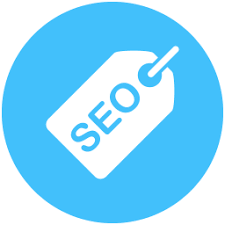Positive On-Page Ranking Factors
Some of the major areas to optimize keyword usage are: title of web page (title tag), meta tag description, anchor texts of links to internal pages of site, anchor text of navigation links, anchor text of footer links, and anchor text of in-context links. Make sure that all of your web pages can be indexed by search engines, make sure that they all have at least one link from somewhere on your site. Make sure that you have unique content on every single page.
Make sure that your web page URLs are SEO friendly, use mod re-write for Linux and Apahche hosting or use IIS redirect for Windows. Ideally make it so that the URLs describe your content i.e. use domain.com/blue-widgets.php as apposed to having something like domain.com/product.php?cat=146. Use hyphens or underscores to separate words in the URLs.
HTML tags are seen by search engines as the most important thing on your site. Make sure whoever builds your site enters them in so that the search engine can pick them up.
Description – When building your site you should inclued a brief description what your company is about or what your site is used for.
Keywords – These are designated in your site’s HTML code, keywords give search engines a general idea about the content of your site.
ALT tags refer to the text that would appear every time the mouse cursor would pass through an image. Your ALT tags should include your keywords.
META tags are HTML codes that do not have a bearing on the physical appearance of your web pages, but they do inform the search engine spiders that such web pages are appropriate for a particular query. Always include the following META tags on the top portion of your source code. You could copy-paste them from the list below, but do change the indicated fields. Also, make sure that you include your keywords as much as you could on your META tags.
Page titles are the captions that appear at the very top of your web page. Make sure that each web page in your website would have a different title that will include the appropriate keywords. Header Tags are an important part of On page SEO and must be applied with care. Ideal optimisation involves a single H1 tag that containing the main keyword for that page followed with H2 tags that containing the secondary keywords for that page. Little importance is given to H3 and on.
In the highly competitive world of the Internet, you can’t stop with on-page optimization. If 100 sites all have the same content and similar optimization, then the only way to reach the top and stand out as the most relevant page in that category is to build up the amount of incoming links pointing to your website. Your link popularity is an off-page factor that has a big role in determining your website’s ranking. There are several ways to build incoming links, and you should use the web promotion technique that is most appropriate for you.
On Page Optimization allows a higher page ranking and based on a specific keyword or phrases they enter. This process identifies those keywords that will benefit a particular website and uses them in such a way that it gets a higher page ranking when those keywords are searched. There are more on-page SEO techniques that need your review, above are just the most common. Make time to review the other techniques to increase your search engine presence and avoid penalty.
There are in fact several things that can be done on page that will have a negative impact. On Page SEO is really just a lot of simple steps, the only problem is remembering them all and checking that they have all been done properly. Once a site is configured well for on page SEO purposes, most of the issues are to do with use of keywords. Whilst it is important to write in a way that search engines can understand it is important not to write for them or try to trick them in any way.
Excellent content can boost your search engine ranking and your credibility. There are lots of factors you need to think about while optimizing your site. When you provide valuable information for your visitors then search engine will also love it. Because the valuable content can make your site so popular. Usually, if your content is useful for real human visitors, it will get lots of backlinks. You know that backlink is such a vote to your site that tell search engine that your site have a valuable information.
Choice of domain name is one of the vital on page SEO factors. In an ideal world you would simply use a keyword but you would be very lucky if this were to be available. Remember that the search engines can’t read Flash content or graphics so these can be a hindrance for SEO purposes. Use text as far as possible. One of the on page SEO factors that is often overlooked is the standard pages. Search engines look for contact pages and legal pages so you should have them. This is pages like About Us, Contact Us, Terms Of Use and Privacy Policy.
On Page SEO Analysis – General Factors
* Add unique content on a regular basis and update old content.
* Use text wherever possible (don’t put content or links in graphics).
* Link out only to relevant sites which have a good reputation. Don’t have too many outbound links.
* Start by using one keyword per page. You can have multiple keywords but this needs to be done carefully and Don’t use frames.
- 0
- By Selva







